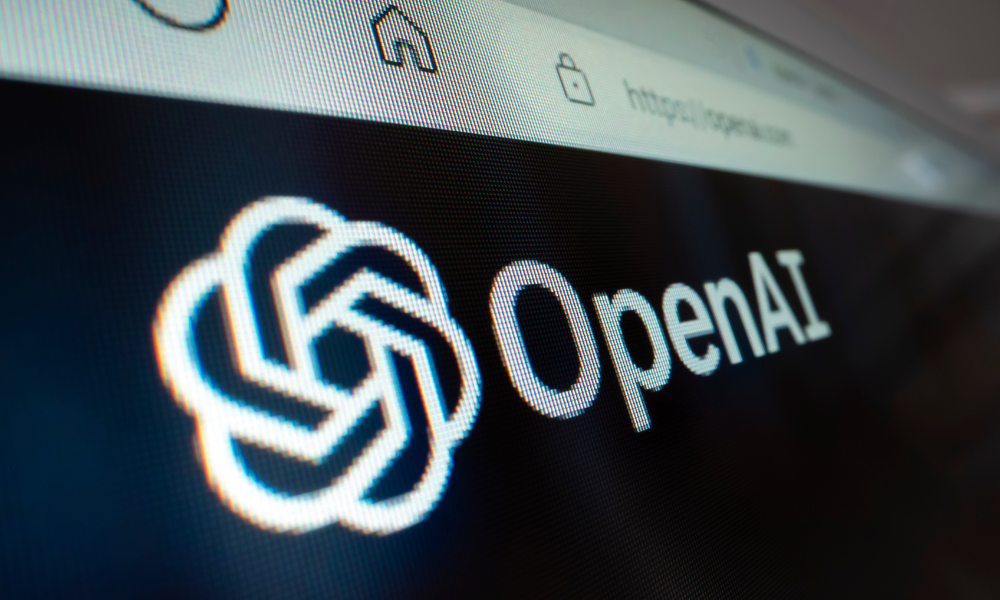

by Shirin Ghaffary, Kate Clark and Rachel Metz
A group of investors led by Elon Musk has offered to buy the nonprofit that controls OpenAI for $97.4 billion, escalating a clash between the Tesla chief executive and the artificial intelligence company he co-founded.
With the unsolicited bid, Musk said he hopes to return OpenAI to being “the open-source, safety-focused force for good it once was,” according to a statement. In response, OpenAI Chief Executive Officer Sam Altman posted on Musk’s X social-media platform: “No thank you but we will buy twitter for $9.74 billion if you want.” (Musk acquired Twitter for $44 billion, but its value later diminished, according to outside estimates.)
The Wall Street Journal was first to report the offer. OpenAI declined to comment.
The bid is being backed by Musk’s own AI startup xAI, which could merge with OpenAI following a deal, the Journal said. According to a statement from Marc Toberoff, a lawyer representing the investors, other backers of proposal include Valor Equity Partners, Baron Capital, Atreides Management, Vy Capital, Joe Lonsdale’s 8VC and Ari Emanuel, through his investment fund. Lonsdale declined to comment. The rest of the named investors didn’t immediately respond to requests for comment.
It’s difficult to determine how serious Musk’s bid is and what his motivation was for making it, said Rob Rosenberg, founder of Telluride Legal Strategies. Even if it’s not successful, Musk’s move could potentially complicate OpenAI’s effort to transition from being a non-profit entity into a multibillion-dollar for-profit AI giant — a transformation Musk has opposed.
“I think he’s trying to make a statement and bring more attention to the fact that OpenAI is still on this course to switch from being a non-profit to a for-profit company,” Rosenberg said.
In the statement, Toberoff indicated one motivation for the bid: to place outside pressure on OpenAI while it determines a value for parts of its business while transitioning to a for-profit entity.
“That value cannot be determined by insiders negotiating on both sides of the same table,” he wrote. “After all, the public is OpenAI Inc.’s beneficiary, and a sweetheart deal between insiders does not serve the public interest.”
Musk and Altman have been locked in a long-standing feud over the direction that OpenAI has taken since its founding. Musk has alleged that the startup has abandoned all pretense of proceeding as a charity to benefit humanity with a focus on openness and safety. OpenAI has rejected that characterization, and last year said that Musk was lashing out after an earlier failed attempt to make the company part of his carmaker Tesla Inc.
In the decade since OpenAI started as a nonprofit — when Musk and Altman worked together as founders — OpenAI has taken billions of dollars in outside investment from Microsoft Corp. and others. In a revised version of a lawsuit that he originally filed in August, Musk called OpenAI’s partnership with Microsoft a “monopoly” that is “actively trying to eliminate competitors, such as xAI, by extracting promises from investors not to fund them.” The revised suit lists 26 legal claims and runs 107 pages, compared with 15 claims in the 83-page original complaint.
Microsoft’s $13 billion investment in OpenAI has raised concerns from the US Federal Trade Commission that the tech giant could extend its dominance in cloud computing into the booming AI market. The Japanese investment firm SoftBank Group Corp., however, is in talks to invest as much as $25 billion in OpenAI, a move that would potentially eclipse all other stakes and make it the startup’s biggest backer. OpenAI is currently in talks with investors to garner a valuation of $300 billion, Bloomberg has reported.
Last month, Microsoft altered its multiyear deal with OpenAI, allowing the startup to use cloud-computing services from rival providers, so long as the software giant doesn’t want the business itself. The restructured deal coincided with an announcement by OpenAI, SoftBank and Oracle Corp. of a new $500 billion joint venture to build cloud computing data centers in the US, dubbed Stargate.
Copyright Bloomberg News

From outstanding individuals to innovative organizations, find out who made the final shortlist for top honors at the IN awards, now in its second year.

Cresset's Susie Cranston is expecting an economic recession, but says her $65 billion RIA sees "great opportunity" to keep investing in a down market.

“There’s a big pull to alternative investments right now because of volatility of the stock market,” Kevin Gannon, CEO of Robert A. Stanger & Co., said.

Sellers shift focus: It's not about succession anymore.

Platform being adopted by independent-minded advisors who see insurance as a core pillar of their business.
RIAs face rising regulatory pressure in 2025. Forward-looking firms are responding with embedded technology, not more paperwork.
As inheritances are set to reshape client portfolios and next-gen heirs demand digital-first experiences, firms are retooling their wealth tech stacks and succession models in real time.
